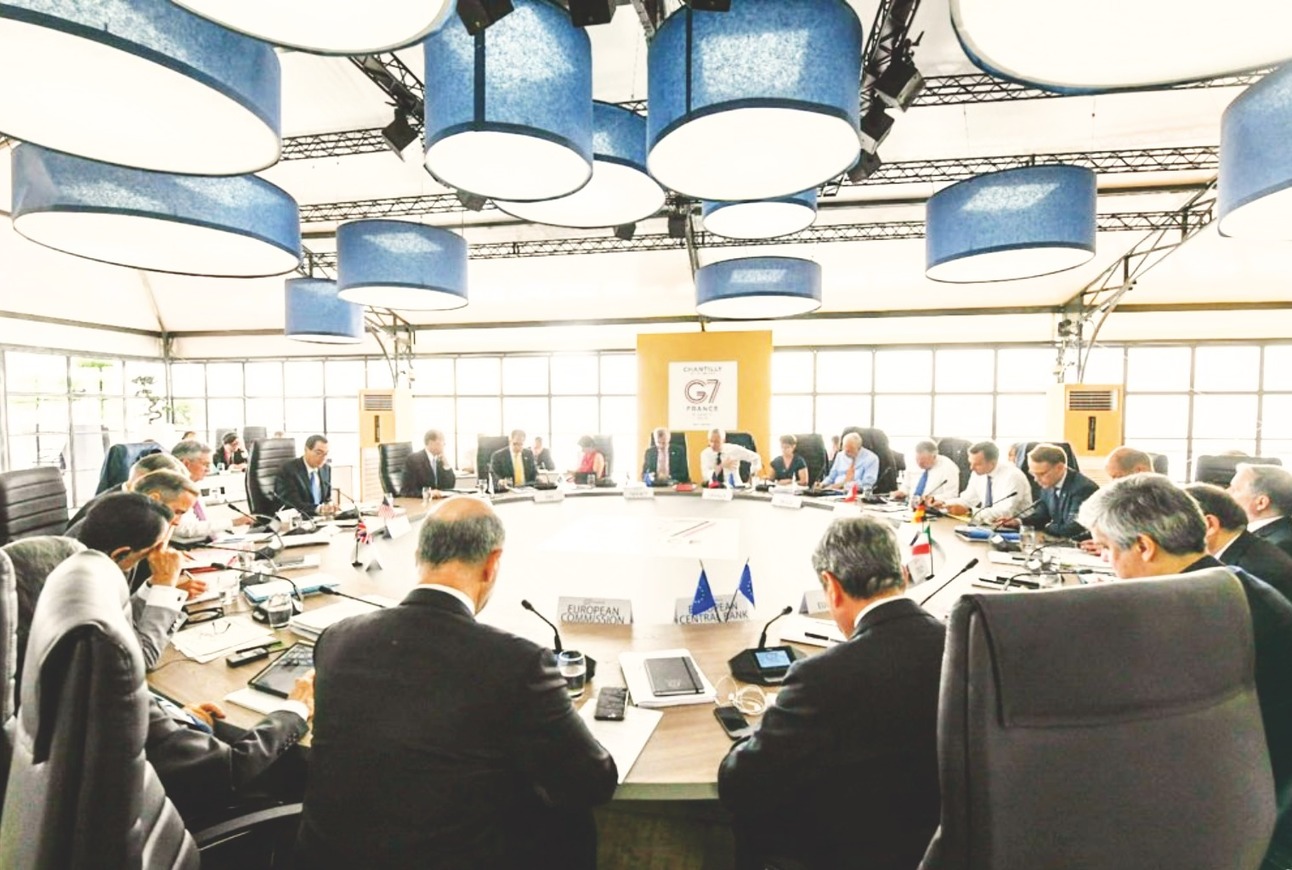G7 meeting of finance ministers and central bank governors in Chantilly.
“Ministers and governors acknowledged that while innovation in the financial sector can bring substantial benefits, it can also entail risks,” the statement reads. “They agreed that stablecoins and other various new products currently being developed, including projects with global and potentially systemic footprint such as Libra, raise serious regulatory and systemic concerns, as well as wider policy issues, which both need to be addressed before such projects can be implemented.” The summary details:
Regarding regulatory concerns, ministers and governors agreed that possible ‘stablecoin’ initiatives and their operators would in any case need to meet the highest standards of financial regulation.
“Regarding systemic concerns, ministers and governors agreed that projects such as Libra may affect monetary sovereignty and the functioning of the international monetary system,” the Chair’s Summary continues.
“On Libra, we had a very constructive and detailed discussion with a very large and shared consensus on the need for action,” a French official told the AFP news agency. After chairing the first day’s meeting, French Finance Minister Bruno Le Maire was quoted by Reuters as saying:
The sovereignty of nations cannot be jeopardised … The overall mood around the table was clearly one of important concerns about the recent Libra announcements, and a shared view that action is needed urgently.
“The issuance of a currency does not belong in the hands of a private company because it is a core feature of a sovereign state,” German Finance Minister Olaf Scholz proclaimed. Asserting that Facebook’s plans do not “seem to be fully thought through,” he is convinced Libra “cannot go ahead without all legal and regulatory questions being resolved,” the news outlet added. A senior Japanese finance ministry official who was at the meeting told the press:
Most G7 members saw Libra as posing a serious problem from the perspective of consumer data protection and the impact on monetary policy.
Facebook recently unveiled its plans for Calibra, a new subsidiary aimed at providing financial services via the Libra network. “The first product Calibra will introduce is a digital wallet for Libra, a new global currency powered by blockchain technology,” the company described.
The G7 has set up a working group on stablecoins, coordinated by Benoit Coeure, Chair of the Committee on Payments and Market Infrastructures (CPMI). Its preliminary findings were provided at the meeting.
The group consists initially of senior officials from the G7 central banks, the International Monetary Fund (IMF), the Bank for International Settlements and the Financial Stability Board (FSB), the Chair’s Summary reveals, adding that it will be expanded to representatives from G7 ministries of finance. The group will also coordinate with the G20 and other relevant standard-setting bodies. Its final report and recommendations are expected by the time of the IMF-World Bank annual meetings in October.
Bank of Japan Governor Haruhiko Kuroda believes that, given the potential impact of Libra on the global economy, the G7 working group would evolve over time to include a broader range of regulators, elaborating:
If the Libra is aspiring to be used globally, countries must seek a globally coordinated response … This is not something that can be discussed among G7 central banks alone.
Central bankers have emphasized that Facebook needs a banking license if it wants to take deposits, with some expressing concerns about allowing people to transact anonymously.
Sourced through Scoop.it from: news.bitcoin.com



Leave A Comment